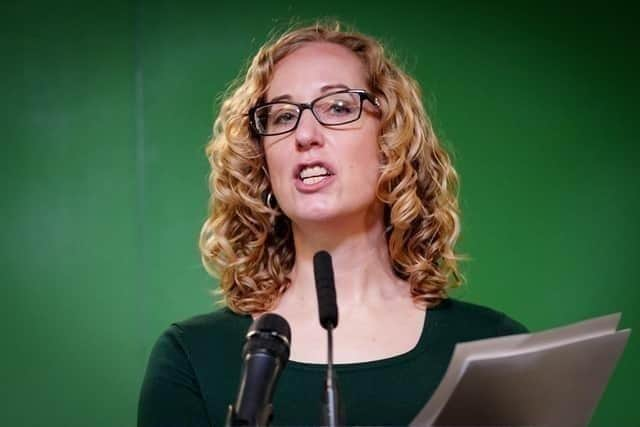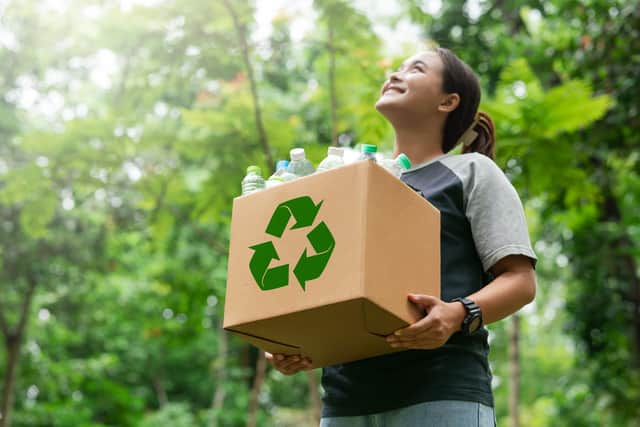We all have a role in creating a cleaner, greener city - Lorna Slater


We should all be grateful to Edinburgh’s sanitation workers, who have a tough job at the best of times. It is a job that becomes even more gruelling after a major concert at Murrayfield or a big event in our city.
Especially at a time of climate crisis we need to be helping them by cutting down what we are throwing out, and ensuring we are reusing as much of it as possible.
Advertisement
Hide AdAdvertisement
Hide AdIn total, Edinburgh produces 200,000 tonnes worth of household waste every year, the equivalent weight of over 13,000 double decker buses. That doesn’t even count any of the waste produced by our businesses.


I know it can be hard to do the right thing when recycling facilities aren’t always available, and, as a Scottish Green, I want to make sure that it is always as easy as possible for us all to play our part.
In my role as a minister I oversee the Recycling Improvement Fund, which is part of the biggest investment in recycling for a generation.
The funding we have given to City of Edinburgh Council will create capacity for an extra 9280 tonnes of recycling per year, helping to boost our facilities and to make sure that our city is doing its bit. The council estimates that around 130,000 households (50 per cent of our city) will have a better service as a result. By ramping up recycling we are helping to ensure cleaner streets and lower emissions. Everything we buy has a footprint, so each and every item that we can save or give a second lease of life is a net positive for our planet and for our community.
Advertisement
Hide AdAdvertisement
Hide AdIt’s part of what we mean when we talk about a circular economy. That is an economy that is where items are built to last and goods can be reused, rebuilt and shared rather than being destroyed or left as landfill.
Change takes time, but we are making important strides. That is why we have increased fines for fly tipping and banned some of the worst single use plastics and why I am introducing a new bill that, among other important steps, will stop the scandal of companies destroying unsold goods and ensure that they make it into the hands of people who need them.
We reached another important milestone this week, with the announcement that Scotland is banning the sale of disposable vapes. Cheap, easily available and full of single-use plastic and lithium, they embody exactly the kind of throwaway culture that we all need to move on from.
We can all benefit from cleaner streets and a healthier and happier city, and we all have a role in getting there.
Comment Guidelines
National World encourages reader discussion on our stories. User feedback, insights and back-and-forth exchanges add a rich layer of context to reporting. Please review our Community Guidelines before commenting.